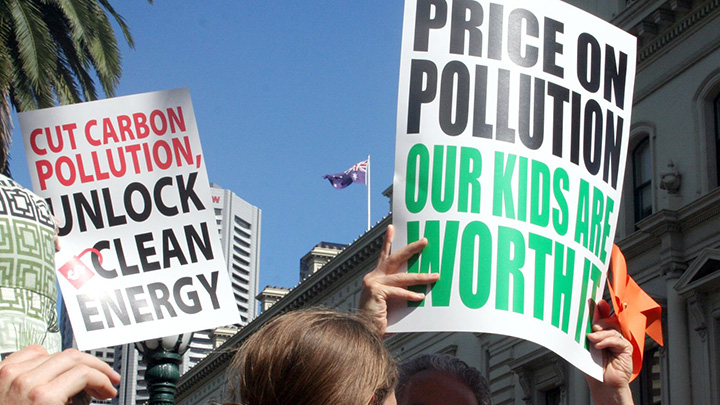Lets talk about climate change policy

The fundamental questions we need to consider are:
– is climate change occurring? and
– is it the result of human activity (especially the burning of fossil fuels such as coal to generate electricity)?
Some people answer: no, to both questions. End of story.
We as a society should stop spending (wasting?) money on the various measures we have taken to assess and combat the warming of the earth (‘global warming’) which is argued to have caused climate change.
There are some good reasons for answering these questions in this way, or at least questioning the mainstream view.
But such people are in a very small minority. The overwhelming majority of scientists, in all parts of the world, have answered the questions in the affirmative.
Therefore those who argue ‘against’ climate change are really being very arrogant.
By aligning themselves with ‘climate sceptics’ they are in effect saying that they know better than the vast majority of scientists. Whose training and accumulated knowledge leads them to the view that climate change is occurring and that the generation of greenhouse gases (carbon dioxide in particular) is causing it.
Of course the sceptics may be right. But it’s more likely, if we’re to place our trust in science and the world’s scientific community, that they’ll be on the wrong side of history and be regarded by their children and grandchildren as having merely aided in the degradation of the environment in which we live.
Are any of you confident enough in your own scientific competence to put yourself in this camp?
But as far as current Australian politics goes all this is irrelevant anyway. The major political groupings have left this debate behind.
While on the surface there appears to be a very clear division on the issue, the formally stated policy positions of the major political parties AGREE on the fundamental aspects of climate change and the target of securing a reduction in greenhouse gases by 2020 to a level 5 percent below that in 2000.
It’s not surprising then that, in this respect, both the main political groupings actually took identical policies to the 2013 election.
The difference, one that voters have now cast their judgment on, is about the means by which the common policy objective (reducing greenhouse gas emissions by 2020) is best achieved.
Voters, collectively, have opted for a policy of what the current government has termed ‘direct action’.
This contrasts to the previous policy of putting a price on carbon, either by fixing a price by levying what came to referred to as a carbon tax, or by letting the market determine a price through what is termed an emissions trading scheme.
Which policy do you support? Which is better?
Putting a price on carbon means that producers who generate greenhouse gases (such as ‘carbon’) incur a cost.
This will probably be passed on to consumers but in any case producers will be encouraged to lower their costs of production, and the price they charge consumers of their product, by adopting processes which do not involve the emission of greenhouse gases. The goal is thus achieved.
The alternative policy, ‘direct action’ involves making payments to producers so as to achieve the same ultimate goal.
The actual policy has not been spelt out by the government very clearly. But it rests essentially on paying business enterprises either to engage in ‘carbon farming’ (i.e. growing trees that will absorb carbon from the atmosphere) or to encourage the adoption of ‘pollution free’ methods of production.
Whatever the case, however, it should be made clear that the policy which has been costed at $3.2 billion will also be paid for by consumers. At least those who are taxpayers because it is they who will provide the $3.2 billion.
The significance for Australian politics is that it raises the question: will the government do what it has said it will do, or in the terminology that politicians are so fond of ‘keep its promises’? And if it does, will the policy work?
This is actually a very good test not only of the government’s resolve to implement the policies that people voted for but of its competence as well.
Is the subject important enough for you that we should explore it in more detail?









 Proudly Australian owned and operated
Proudly Australian owned and operated